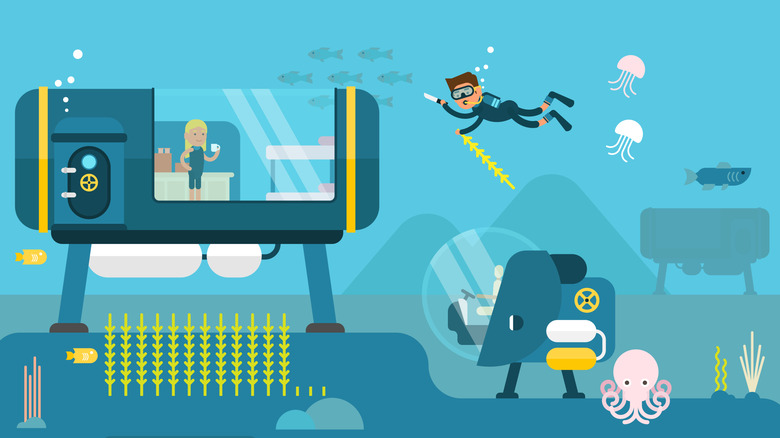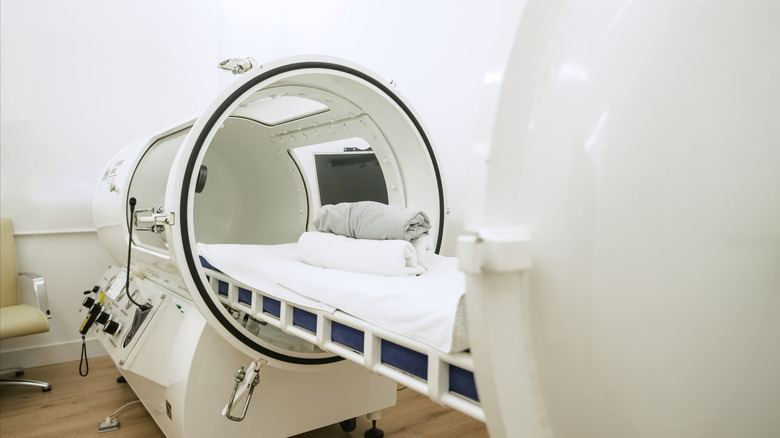What Living Underwater Can Do To A Human Body
The human body is constantly evolving, adapting over time to changing conditions as necessary. However, it has only adapted to what it has experienced on the surface of the Earth. The human body isn't used to foreign conditions. For instance, space permanently damages astronauts, causing decreased bone density, weakened or atrophied muscles, and neurological issues despite the rigorous preparations that astronauts undergo. But what happens to the human body while living underwater for an extended period is totally different.
In 2023, 55-year-old Joseph Dituri, an associate professor at the University of South Florida (who has been endearingly nicknamed Dr. Deep Sea) took on the mission of breaking the 73-day record for living underwater. With the intention of learning more about how hyperbaric pressure affects the human body, he stayed in the Jules' Undersea Lodge off the coast of Key Largo at 22 feet under the surface for 100 days. Dituri hypothesized that his stint under the sea would demonstrate that the increased pressure can prevent age-related diseases and make humans live longer, and he was right.
While the preliminary results showed that Dituri shrunk 1 inch while he was living in the underwater habitat, his body's inflammation and cholesterol levels greatly improved compared to before the mission started. He also experienced improvements in his sleep. After about nine months of blood tests and studying all the data collected, his DNA was actually younger. Since a hyperbaric chamber provides similar pressure to living underwater for so long, some people use them as an anti-aging treatment.
A hyperbaric chamber can reverse aging and more
In an interview with Florida's Fourth Estate podcast, Dituri talked about how living in the Jules' Undersea Lodge turned back the clock on his DNA. "On the ends of your chromosome, you have these little extensions, and every time you replicate this chromosome [...] that telomere shrinks," he said. "When the telomeres are gone you have no more ability to replicate, that's called cell death [...] so that is truly the world-class definition of aging. But, if you can make that telomere longer you can actually extend life."
Nine months after the experiment, Dituri's telomeres (which are a special sequence added at the end of the DNA molecule replication process) were still longer than they should have been. On top of that, he had 17 times as many stem cells as normal, and a 50% reduction in inflammatory markers. Although no published research has come from Dituri's stay on the ocean floor, science very much backs up his claims. A 2024 research review in Frontiers in Aging found that hyperbaric oxygen therapy had a number of health benefits, not least its effect on telomeres. Hyperbaric chambers are currently used to treat a number of ailments, notably post-traumatic stress disorder and brain injuries, but it's not available to everyone because it's expensive and requires a prescription.
In the meantime, underwater research and engineering firm Deep hopes to launch the Sentinel oceanic habitat system in 2026 which could allow scientists to live at up to 656 feet under the surface for no more than 28 days. Until that's possible, though, anyone who wants to get a taste of what it would be like to live under the sea can book a stay in the Jules' Undersea Lodge that Dituri stayed in.

